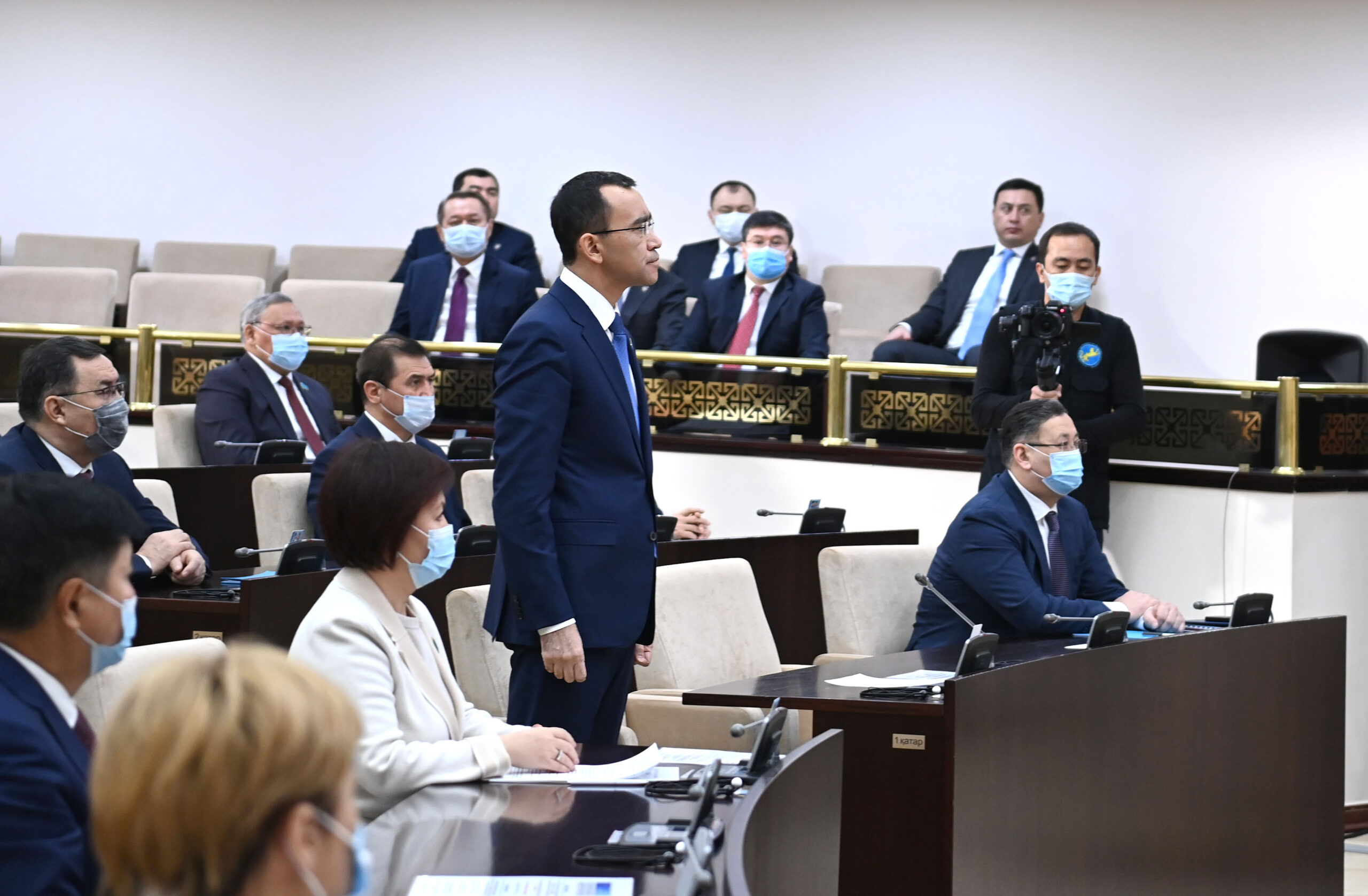ASTANA – Maulen Ashimbayev, 51, was unanimously voted by the deputies of the Senate on Jan. 26 as Kazakhstan’s Senate Chairperson after President Kassym-Jomart Tokayev proposed his candidacy for the position.

Tokayev proposes the candidacy of Maulen Ashimbayev on Jan. 26. Photo credit: Akorda press service
After addressing the newly elected and appointed deputies of the upper chamber of the Kazakh Parliament, President Tokayev put forward Ashimbayev’s candidacy for the position of Senate Speaker. The position remained vacant after Tokayev relinquished the duties of the deputies and re-appointed them the same day following the Jan. 14 election.
Ashimbayev, who recently visited Kyrgyzstan to forge cooperation with Kyrgyz parliament deputies, has held this position since May 2020.
A graduate of the Al-Farabi Kazakh State National University and Fletcher School of Law and Diplomacy of the Tufts University, in different years, Ashimbayev served as first deputy chief of the presidential administration, Assistant to the President, first deputy chairperson of the Amanat party and deputy secretary of the Security Council.
“He has already proven to be extremely good at this position. He is well acquainted with lawmaking and has extensive experience in public administration. So he is worthy of taking the position of the Speaker of the Senate,” said Tokayev.
Ashimbayev expressed his gratitude to Tokayev and the senators for the high trust placed in him.
Almost half of the deputy corps – 31 out of 50 in the Senate – was reinstated following the Jan. 14 election. Tokayev said that the Senate holds an important responsibility in making the planned reforms successful.
“All of this will allow the Senate to protect the interests of all citizens of the country. The house plays a special role in the public administration system. According to the Constitution, the Senate is entrusted with important functions. All conditions have been created for the qualitative implementation of lawmaking activities,” said Tokayev.
Within less than six months, Kazakhstan has had presidential elections in November and then Senate elections in January. Ahead is the election of deputies to the Mazhilis, the lower chamber of the Kazakh Parliament, and the maslikhats, local representative bodies, on March 19, which Tokayev described as the “final stage of a complete reset of key state institutions.”
The election to the Mazhilis will be held under the new mixed electoral system introduced following last year’s constitutional amendments, where 70 percent will be elected from party lists, and 30 percent in single-mandate districts, giving a chance for ordinary citizens to participate in parliamentary activity.

